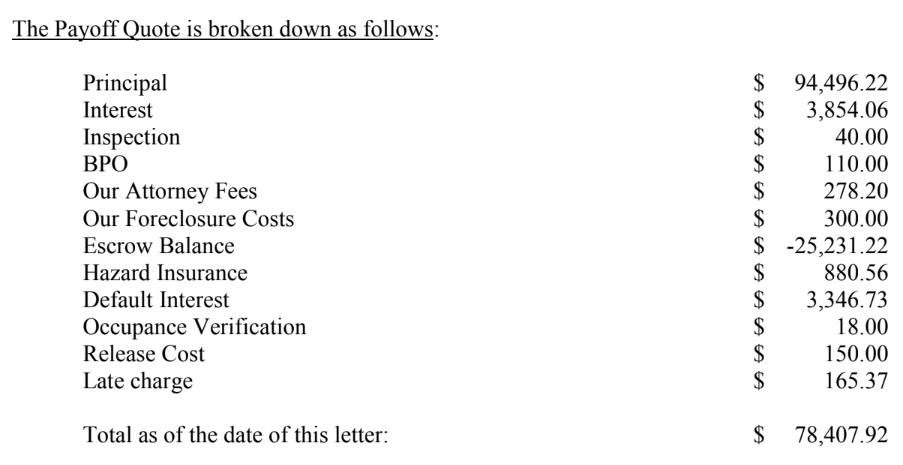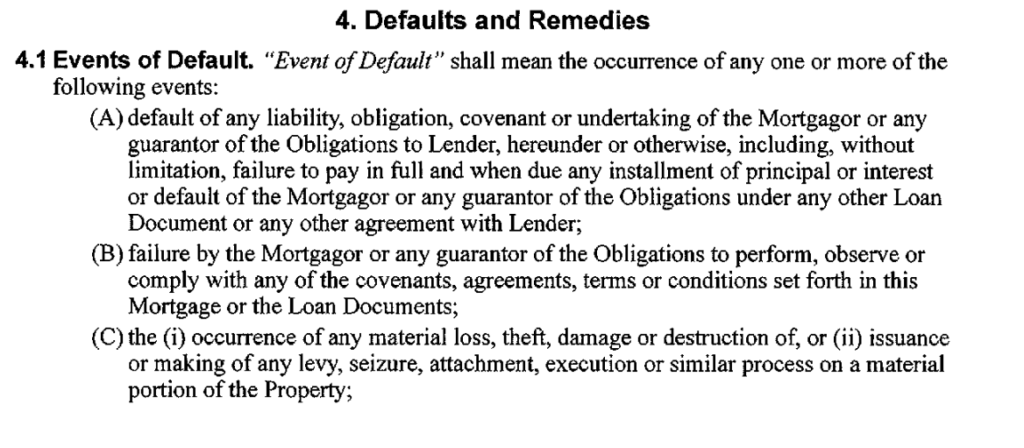In the world of real estate investing, hard money loans offer a valuable financing option for those who may not qualify for traditional bank loans. However, the risks associated with defaulting on a hard money loan can be costly and have long-lasting consequences. Should you find yourself unable to meet the repayment obligations, the consequences may include losing the property securing the loan, damaging your credit score, and facing legal action. Understanding the potential repercussions of defaulting on a hard money loan is crucial for any investor considering this form of financing.
Consequences of Defaulting on a Hard Money Loan
Impact on Credit Score
Defaulting on a hard money loan can have a significant impact on your credit score. When you default on a loan, it will be reported to the credit bureaus, and this negative information can stay on your credit report for up to seven years. A lower credit score can make it more difficult for you to secure future loans, such as mortgages or car loans, and can also result in higher interest rates on any loans you do obtain. Additionally, defaulting on a loan can make it challenging for you to rent an apartment or even get hired for certain jobs, as many employers and landlords consider credit history as an indication of financial responsibility.
Foreclosure of the Property
In the event of default on a hard money loan, the lender has the right to foreclose on the property that was used as collateral for the loan. Foreclosure is a legal process in which the lender takes ownership of the property and sells it to recoup the outstanding loan balance. Not only does foreclosure result in the loss of your property, but it can also have long-term consequences for your financial well-being. Foreclosure records are publicly available and can negatively affect your creditworthiness for years to come, making it challenging for you to obtain future loans or secure favorable terms on housing.
Loss of Investment
Defaulting on a hard money loan also means that you will likely lose any investment you made using the loan funds. Whether you used the loan to purchase a property for rental income or to invest in a real estate development project, failing to make timely payments can result in the lender taking control of the property and any associated profits. This loss not only impacts your current financial situation but also hinders your ability to generate future income and grow your wealth. It is crucial to carefully consider the potential risks and returns of any investment before borrowing funds.
Legal Action by the Lender
When you default on a hard money loan, the lender may choose to take legal action against you to recover their losses. This can involve filing a lawsuit to obtain a judgment against you, which can result in wage garnishment or the seizing of your assets. Legal action can be a lengthy and expensive process, and it is essential to be aware that the lender has the right to pursue all legal remedies available to them. It is crucial to consult with a legal professional who specializes in real estate and lending to understand your rights and options in such situations.

Options for Borrowers in Default
Loan Restructuring
If you find yourself unable to make timely payments on your hard money loan, one potential option is to negotiate a loan restructuring with the lender. Loan restructuring involves modifying the terms of the loan agreement to make it more manageable for you to make payments. This can include extending the loan term, reducing the interest rate, or even forgiving a portion of the outstanding balance. However, it is important to note that loan restructuring is at the discretion of the lender and may not always be an available option. It is crucial to communicate promptly with the lender and provide them with updated financial information to increase the likelihood of a successful restructuring.
Sale of the Property
If you are unable to secure a loan restructuring or if the terms of the restructuring are not feasible for you, another option is to sell the property pledged as collateral for the hard money loan. Selling the property can help repay the outstanding loan balance and potentially mitigate further financial losses. However, it is worth noting that selling the property may require time and effort, and there is no guarantee that the sale price will cover the full loan amount. It is essential to work with a real estate professional to assess the market value of the property and develop a comprehensive selling strategy.
Seeking Professional Assistance
Navigating through the consequences of defaulting on a hard money loan can be a complex and overwhelming process. Seeking the guidance of professionals in the real estate and lending industries can provide invaluable support and expertise. Loan modification specialists, real estate agents, and attorneys specializing in real estate law can help you explore your options, negotiate with the lender, and develop a strategic plan to address the situation. Their knowledge and experience can help you make more informed decisions and increase the likelihood of a favorable outcome.

Important Factors to Consider
Review of the Loan Agreement
When facing default on a hard money loan, it is crucial to review the loan agreement carefully. Understanding the terms and conditions within the agreement can help you evaluate your rights, obligations, and potential consequences. Pay close attention to clauses related to default, foreclosure, and lender remedies. Being aware of these provisions from the beginning can empower you to take proactive steps and potentially prevent default. If you have any questions or concerns about the loan agreement, consult with a legal professional who specializes in real estate and lending to ensure you fully understand your rights and obligations.
Communication with the Lender
Maintaining open and transparent communication with the lender is vital when facing default on a hard money loan. Contact your lender as soon as you anticipate or experience financial difficulties that may impact your ability to make timely payments. Be prepared to provide updated financial information and explain the reasons behind the default. By engaging in proactive communication, you demonstrate your willingness to address the situation responsibly and may increase the likelihood of finding a mutually beneficial solution, such as a loan restructuring or repayment plan. Prompt communication can also help you avoid or mitigate legal action by the lender.
Financial Planning for the Future
Defaulting on a hard money loan should serve as a wake-up call for comprehensive financial planning. Take the opportunity to reassess your overall financial situation, budgeting, and financial goals. Develop a realistic plan to manage your current obligations and prevent future default. This may involve creating an emergency fund to cover unexpected expenses, improving your credit score by making timely payments on other debts, and implementing strict budgeting measures. A well-thought-out financial plan can help you regain control over your finances and ensure a more stable future.

Prevention and Mitigation Strategies
Thorough Evaluation of the Borrower’s Financial Situation
One of the best ways to prevent defaulting on a hard money loan is to conduct a thorough evaluation of your financial situation before borrowing. Assess your income, expenses, and existing debts to determine the feasibility of taking on additional debt. Carefully consider the potential risks and returns of the investment for which you are seeking financing. Ensure that you have a realistic and achievable plan to generate income and make timely repayments. By conducting a comprehensive evaluation, you can make informed borrowing decisions and mitigate the risks of default.
Establishing Realistic Repayment Plan
When taking out a hard money loan, it is essential to establish a realistic repayment plan that aligns with your financial capabilities. Consider your income, expenses, and potential fluctuations in your financial situation. Determine how much you can comfortably allocate towards loan payments without jeopardizing your financial stability. Take into account factors such as vacancies or unexpected repairs if you are using the loan for real estate rental purposes. By establishing a realistic repayment plan from the outset, you can reduce the likelihood of default and ensure a more secure financial future.
Creating Emergency Funds
An effective way to mitigate the risk of defaulting on a hard money loan is to create and maintain emergency funds. An emergency fund is a designated amount of money set aside to cover unexpected expenses or temporary income loss. Having such funds available can help you make loan payments even during challenging financial periods. Aim to save a minimum of three to six months’ worth of living expenses in an easily accessible account. By having emergency funds, you create a financial safety net that can provide peace of mind and alleviate the pressure of unexpected financial situations.
In conclusion, defaulting on a hard money loan can have severe consequences, including negative impacts on your credit score, foreclosure of the property, loss of investment, and potential legal action by the lender. However, borrowers in default do have several options to consider, such as loan restructuring, the sale of the property, and seeking professional assistance. It is crucial to carefully review the loan agreement, maintain open communication with the lender, and engage in comprehensive financial planning for the future. Additionally, prevention and mitigation strategies, including thorough evaluation of the borrower’s financial situation, establishing a realistic repayment plan, and creating emergency funds, can help mitigate the risks of default and ensure a more secure financial future.




